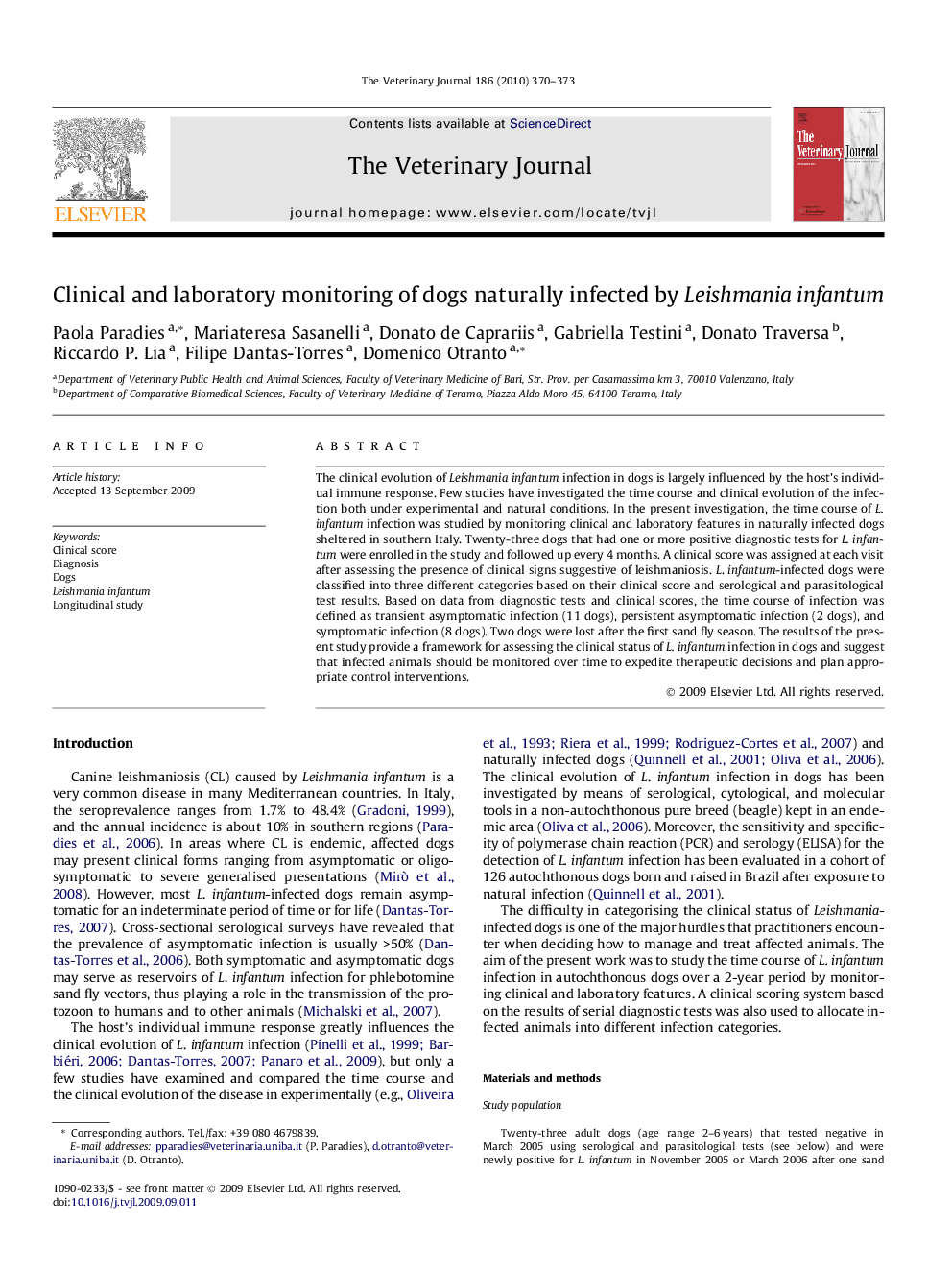| Article ID | Journal | Published Year | Pages | File Type |
|---|---|---|---|---|
| 2464859 | The Veterinary Journal | 2010 | 4 Pages |
The clinical evolution of Leishmania infantum infection in dogs is largely influenced by the host’s individual immune response. Few studies have investigated the time course and clinical evolution of the infection both under experimental and natural conditions. In the present investigation, the time course of L. infantum infection was studied by monitoring clinical and laboratory features in naturally infected dogs sheltered in southern Italy. Twenty-three dogs that had one or more positive diagnostic tests for L. infantum were enrolled in the study and followed up every 4 months. A clinical score was assigned at each visit after assessing the presence of clinical signs suggestive of leishmaniosis. L. infantum-infected dogs were classified into three different categories based on their clinical score and serological and parasitological test results. Based on data from diagnostic tests and clinical scores, the time course of infection was defined as transient asymptomatic infection (11 dogs), persistent asymptomatic infection (2 dogs), and symptomatic infection (8 dogs). Two dogs were lost after the first sand fly season. The results of the present study provide a framework for assessing the clinical status of L. infantum infection in dogs and suggest that infected animals should be monitored over time to expedite therapeutic decisions and plan appropriate control interventions.
